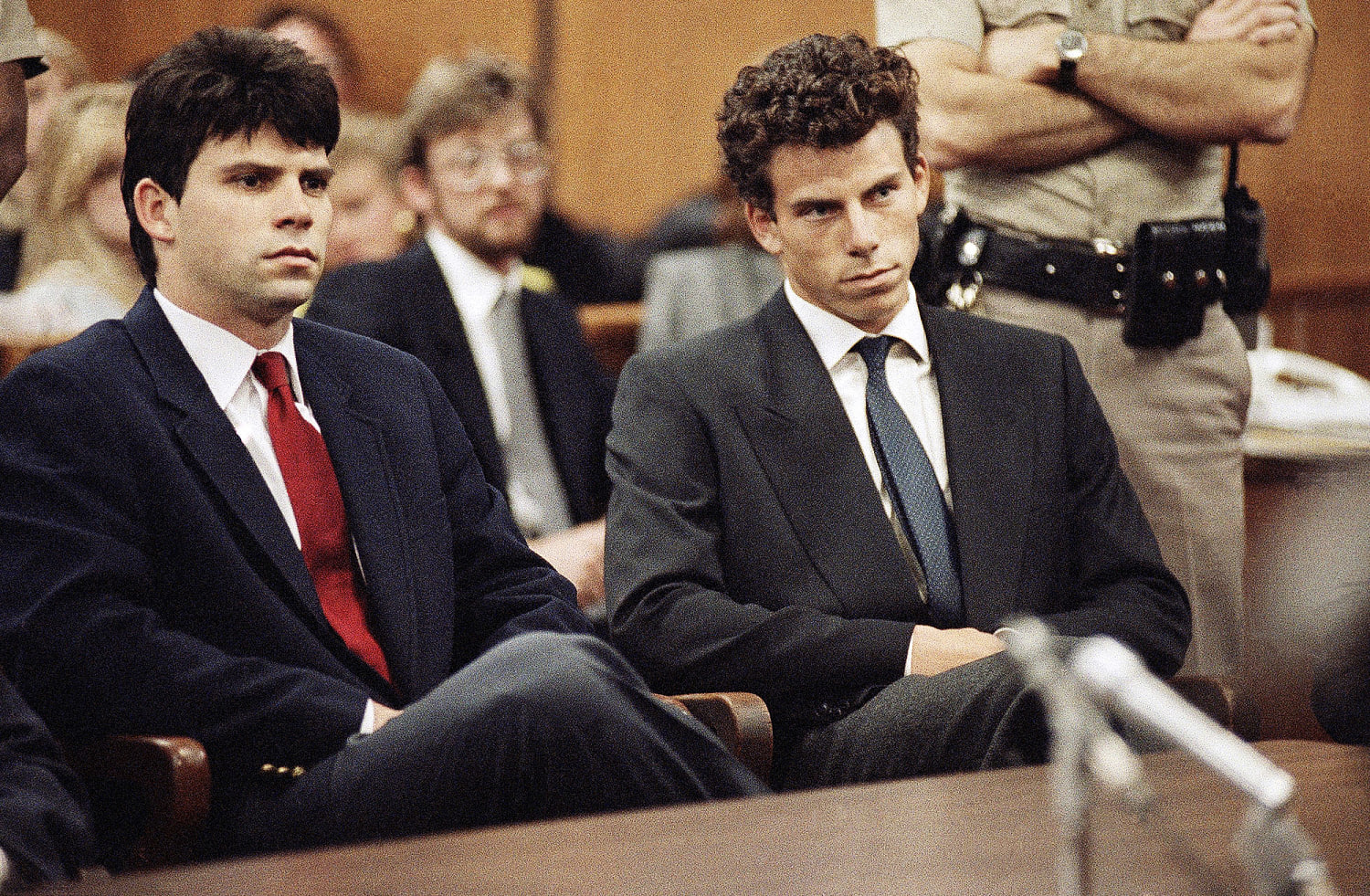
Erik and Lyle Menendez are expected to appear virtually in a Los Angeles courtroom beginning Thursday for two-day hearing that will examine a hotly contested question: Should the brothers, who are serving sentences of life without the possibility of parole for the shotgun murder of their parents in 1989, be free?
Los Angeles County’s former top prosecutor, George Gascón, believed they should. After more than three decades in prison, he called them “model” inmates and, in October, his office recommended that Erik, 54, and Lyle, 57, be resentenced to 50 years to life, a prison term that would make them eligible for parole immediately.
That position has been backed by celebrities and many of the victims’ relatives, who in recent months have frequently spoken out about the brothers’ accomplishments in prison and the abuse that they believe the siblings suffered at the hands of their father, Jose Menendez.
But Gascón was voted out in November, and his replacement, Nathan Hochman, has taken a very different view of the case.
Hochman — a former federal prosecutor and general counsel for a business litigation firm — has said that after his office launched a review of tens of thousands of pages of trial transcripts, prison records and other evidence, he concluded that the brothers haven’t taken complete responsibility for their crimes.
Last month, Hochman said he would withdraw Gascón’s recommendation.
In court papers and at a press conference, the district attorney and his deputies have pointed to 16 “unacknowledged” lies they say the brothers have told about the murders. Among those lies, the prosecutors have said, was the brothers’ claim that they killed their parents in self-defense after Lyle confronted his father about his alleged abuse of Erik.
That claim featured prominently during the brothers’ first trial, which ended with a hung jury in January 1994. During their second trial, a high-court ruling barred the brothers from invoking an “imperfect” self-defense, as the legal doctrine is known. They were convicted of first-degree murder.
Prosecutors who tried the brothers have described the murders as cold-blooded and financially motivated. One of the prosecutors in the second trial, Juan Mejia, told NBC News last year that their mother may have known about the alleged abuse and didn’t do anything about it.
“But there’s no justification for shooting your mom eight times with a shotgun and reloading,” he said.
Hochman has taken a similar position and said that if the brothers “come clean” with the court, their family and the public, they “can be said to have fully and completely accepted responsibility for their actions.”
The brothers’ family countered that Hochman’s assessment was based on “outdated arguments, a misleading presentation of facts, and a deep misunderstanding of the purpose of the resentencing process itself.”
The district attorney could not undo the process initiated by his predecessor “simply because a different administration is in office,” a family-led advocacy group, the Justice for Erik and Lyle Coalition, said in a release earlier this month.
The two sides squared off during a lengthy hearing on the matter last week, with a deputy district attorney recounting the brothers’ alleged lies and detailing the “severity” of the killings.
The defense focused on the brothers’ deeds while incarcerated — they’ve helped inmates with severe disabilities, completed college courses and established a green space “beautification” project — and criticized the prosecution for showing a crime scene photo that the attorney said “retraumatized” Menendez family members who attended the hearing.
The family later said they wanted the district attorney’s office removed from the case over the image. Hochman’s office apologized for not giving prior warning that the brothers’ conduct would be “described in detail not only in words but also through a crime scene photo.”
At the end of last week’s day-long hearing, the judge overseeing the case said both sides had strong arguments that were best saved for this week.
Regardless of the hearing’s outcome, the brothers are still pursuing two other possible paths to freedom: a request for clemency with California Gov. Gavin Newsom and a petition that cites what the defense team has described as new evidence that seeks to overturn the brothers’ convictions. Both efforts remain ongoing.

